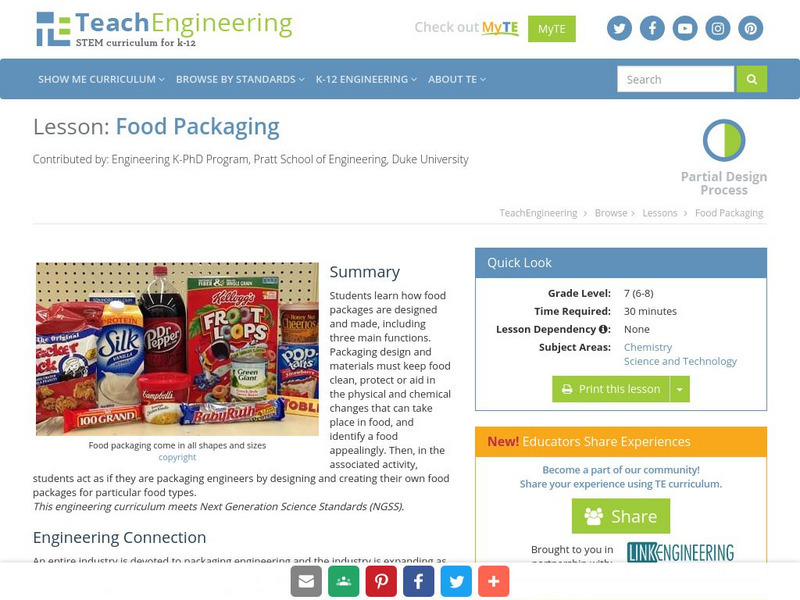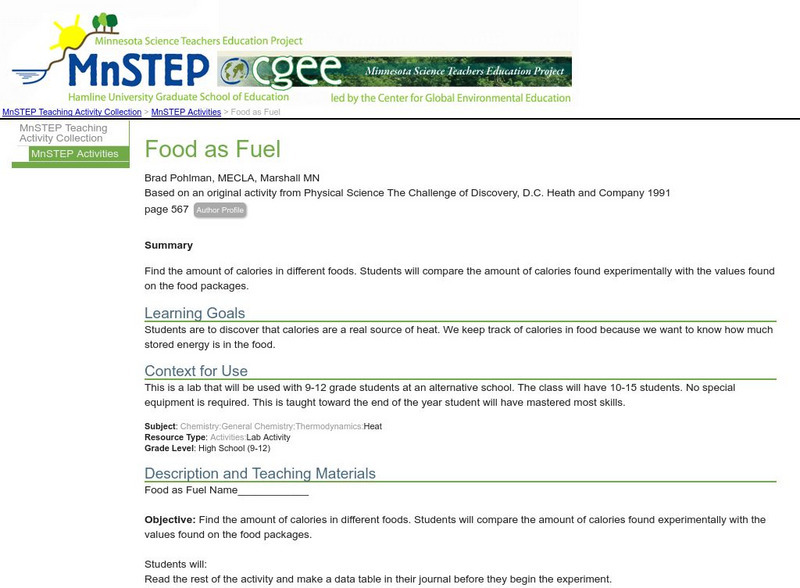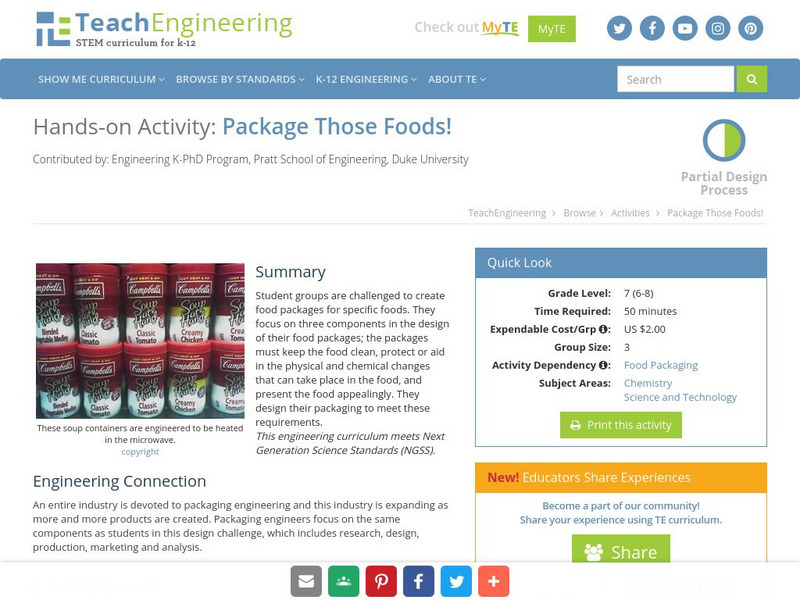Hi, what do you want to do?
Curated OER
Good Guys or Bad Guys
Sixth graders complete a variety of activities to explore both positive and negative effects of microorganisms. They, in groups, engage in a series of experiments which illustrate the effects of certain molds.
Curated OER
Growing Plants with Worm Castings
Students test worm castings for content and use them to grow seeds. They hypothesize which castings best sustain seed growth. They observe growing plants to test their hypotheses. Later they graph their data.
Curated OER
Introduction and Making Textured Beads
Students explore the basics of working with polymer clay. They experiment with textures, inclusions. Students explore adding sand or glitter to their inclusions. Students create textured beads from the clay.
Curated OER
Think Green
Students experience and practice compositing and recycling through hands-on-activities. They distinguish between which items from their trash can be recycled, composted and reused. The process for making recycled paper is also covered in...
Curated OER
Sunflower Seed House
Students use sunflower seeds to make a picture of a house. This lesson uses the book, "Sunflower House."
Curated OER
A Brief History of Los Angeles
Students study the diverse cultures that make up the population of Los Angeles.
Curated OER
Gluten and Balloons What Do They Have In Common?
Students examine the purpose of gluten in bread making and what type of flour is needed to make bread. They compare the properties of a balloon to bread dough to explain yeast fermentation. They make bread.
Curated OER
Very Big Company
Students describe the problems of political independence without economic independence. They evaluate the natural resources, human resources and industrial resources of a country and make economic decisions. They evaluate strengths and...
Curated OER
Analyzing Problem Solving-3
In this elementary math worksheet, students read the word problems and figure out what kind of number sentence is used to solve the four questions.
Curated OER
What's It Worth? Thinking About Weights and Measures
Students examine how weights and measures can be used to assess value, that traders must be wary of fraudulent practices, and appreciate the Akan weights as works of art.
Curated OER
Mixing Up Magic
Students explore the relationship between art and science through experimenting with color, design and recycled materials and creating their own art work.
Curated OER
Composting -- Nature's Disappearing Act
Studenst work together to discover the concept of biodegradability. They build a model of a landfill and how different items decompose. They examine how engineers use this information for better waste management.
Curated OER
The Egg and Symbolism with the Christian Easter
In this language arts and religion learning exercise, students read an informative page about the symbolism of the egg in the Christian Easter. Students answer 6 questions. This page is from the UK.
Curated OER
Intermediate Sentence Completion 8
In this sentence completion worksheet, students read the sentences and choose the best word to complete the sentence. Students complete 12 sentences.
Curated OER
Cell Community
Seventh graders use technology to review cell structure and function. In this cells less, 7th graders review the parts and functions of a cell, and use photography/video and PowerPoint to enhance their explorations.
Curated OER
It’s Your Trash!
Students identify the different sections of a landfill. In this ecology lesson, students brainstorm ways that they can help in proper trash disposal. They write a reflection journal about their thoughts on the subject.
TeachEngineering
Teach Engineering: Food Packaging
This lesson plan focuses on how food packages are designed and made. Students will learn three of the main functions of a food package. They will learn what is necessary of the design and materials of a package to keep food clean,...
Science Education Resource Center at Carleton College
Serc: Food as Fuel
Students find and compare the amount of calories found experimentally with the values found on the food packages.
Thinkport Education
Thinkport: Designing a Healthier, Happier Meal: Stem Career: Packaging Engineer
See how packaging engineers who work in the food industry create many different kinds of food packaging.
Science Buddies
Science Buddies: How Does Packaging Affect the Ripening of Fruit?
Why do different types of fruits come packaged in different ways? In this project, you will experiment with different ways of packaging fruit to see if it has an effect on the freshness of the fruit. Will a different kind of packaging...
TeachEngineering
Teach Engineering: Package Those Foods!
This activity provides students with the opportunity to create a food package for a specific food. The students have three components to focus on in the design of their food package. The package will have to keep the food clean, protect...
Other
Hoover Online: u.s. Food Administrator
See how Herbert Hoover, as head to the U.S. Food Administration during World War I, encouraged Americans to reduce food consumption to help the troops. Don't miss the poster that explained the schedule Americans were to use in planning...
Other
American Diabetes Association: Making Sense of Food Labels
This is a simple guide to understanding the Nutrition Facts label, which is on most packaged foods in the grocery store. Read definitions of terms on labels like "serving size," "reduced," and "free." Learn the importance of...



























